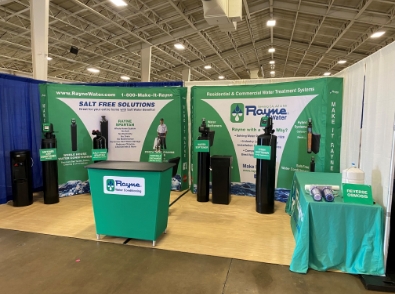
Answer a few questions and find the perfect product for your needs.
Start questionnaire
Answer a few questions and find the perfect product for your needs.
Start questionnaire
Answer a few questions and find the perfect product for your needs.
Start questionnaireAuthor: Ken Christopher | 3 min read | Oct 17, 2025
Limescale buildup can be a major nuisance for homeowners in Peoria, affecting the efficiency and longevity of your appliances. Understanding how to prevent limescale in appliances is essential for protecting your investment and ensuring they operate optimally. Here, we offer practical tips and solutions to combat limescale effectively.
Limescale is a hard, chalky deposit that forms when hard water evaporates or is heated. It primarily consists of calcium carbonate and can accumulate in appliances like:
The presence of limescale can lead to reduced efficiency, increased energy bills, and potential damage over time.
One of the most effective ways to prevent limescale is by installing a water softening system. A whole house water softener provides soft water to all appliances, significantly reducing limescale buildup.
Learn more about our whole house water softener systems.
In addition to installing a water softener, regular cleaning and maintenance of your appliances can help manage limescale.
High water temperatures can accelerate limescale formation. Keeping your water heater temperature at a moderate level (around 120°F) can help reduce the risk of deposits forming.
Vinegar is a natural way to prevent and remove limescale. Periodically running a solution of vinegar and water through your appliances can help dissolve existing limescale and prevent new buildup.
It’s wise to descale appliances like coffee makers and kettles every three months, while dishwashers should be cleaned monthly to prevent limescale buildup.
Yes, limescale can be removed using descaling solutions or natural products like vinegar. However, preventing its formation through regular maintenance and water softening is far more efficient.
Signs of hard water include limescale buildup on fixtures, dull laundry, and soap not lathering well. Consider a water test kit for a precise measurement.
Preventing limescale in appliances is not just about cleaning; it’s about investing in solutions that protect your home. By installing a water softener and maintaining your appliances regularly, you can ensure they operate efficiently, saving you money in the long run. If you’re interested in solutions tailored to your needs, check out our reverse osmosis drinking water systems and explore bottleless water cooler solutions for offices.
By taking proactive steps today, you can enjoy a smoother-running home with minimal disruptions caused by limescale.
Ken Christopher is the Senior Vice President for Rayne Dealership Corporation. As a seasoned executive with over 20 years of leadership experience, he’s helped scale…
Subscribe our newsletter to receive the latest news and exclusive offers every week. No spam.